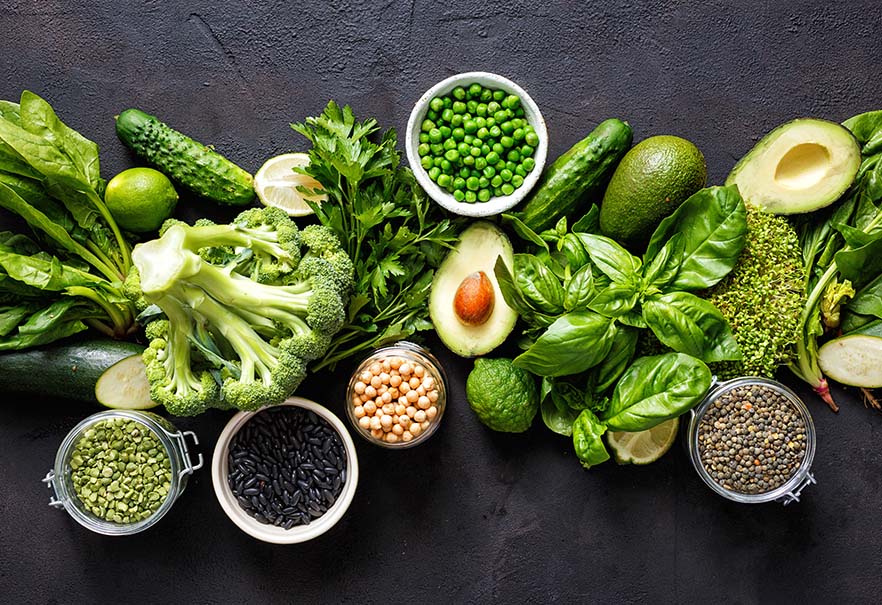Consumers are becoming more aware of the items that they are buying, and they are especially conscious of the practices in which their food is grown. The term “organic” has become increasingly common, and this refers to products or other ingredients that are grown without using synthetic fertilizers, pesticides, sewage sludge, ionizing radiation, or genetically modified organisms. In organic farming, this also means that animals used to produce meat, eggs, dairy, and poultry are not fed growth hormones or antibiotics.
In addition to the benefits that organic practices have on food quality, going organic is also beneficial for the environment. Organic farming uses methods that are proven to conserve water, promote healthy soil, and reduce pollution. An organic movement has promoted the use of safe, organic farming practices in order to prevent the toxic effects of chemicals that are put into the environment. This movement has expanded with environmental changes, food scarcities, and greater health consciousness, and today, organics have grown to include clothing as well as food products.
Benefits of Choosing Organic
- Why Choose Organic, Locally Grown Products?: The Northeast Organic Farming Association of Vermont discusses five important reasons to choose organic products.
- Health Benefits of Choosing Organic: A description of how organically grown produce can reduce risks of antibiotic overuse, supplemental hormones, and chemical contamination.
- Environmental Benefits of Organic Agriculture: An explanation of how organic farming can improve soil quality, water, and air and climate changes.
- The Top Reasons to Support Organic: A list of the top ten reasons to support organic as compiled by the Organic Trade Association, the Organic Farming Research Foundation, and the Fresh Ideas Group.
Organic Food
- Organic Food and Growing Methods Frequently Asked Questions: This site is an informative resource from EatRight Ontario that will help consumers make the right choices when it comes to organic foods.
- Smarter Living: Choose Organic Produce Where it Matters Most: This page from the Natural Resources Defense Council explains the dangers of pesticides in produce and why organically grown foods are a safe and healthy alternative that will provide consumers with maximum energy.
- Organic Foods for Children: This Time magazine article explores why organic food and produce is the right choice for parents with children, as numerous health benefits can be achieved by buying organic. By reducing pesticides, children will only be exposed to the vitamins and minerals that come with good nutrition when choosing organic.
- Choosing Organic Food (PDF): This consumer’s guide contains information about whether organic food is healthier than conventional produce. It also discusses nutritional quality and sustainability in relation to organic vs. natural foods.
Organic Farming
- Organic Farming FAQs: This page includes answering some of the most frequently asked questions regarding organic farming.
- Organic Livestock: This resource from the University of Florida’s Institute of Food and Agricultural Sciences examines animal management practices used to produce certified organic livestock with the greatest possible nutrition.
- Organic Farming Principles and Practices: This paper takes an in-depth look at the evolution of organic farming practices as well as popular methods of organic farming.
- Transitioning to Organic Production: This article created by the USDA Sustainable Agriculture Research and Education (SARE) lays out conversion strategies and typical organic farming practices. The history of organic farming in the U.S., an overview of systems in organic farming, and the economics of organic production are also discussed.
- Organic vs. Conventional Farming and Energy Consumption: This Washington Post article explores the difference between organic and conventional farming practices in terms of energy use and consumption.
Organic Clothing
- An Introduction to Organic Fibers: This page explores what it takes for farms to achieve organic certification for their fibers. It also helps readers to understand the variety of organic fibers that are available for clothing, including organic cotton, hemp, wool, kapok, and buckwheat.
- Why Choose Organic Clothing?: The clothes that you wear can impact your mental and physical health and wellbeing. This article explores how organic clothing will impact the way that your body functions, as well as the benefits of organic silk and cotton.
- Organic Fashion: This article discusses the appeal of organic clothing, and it also provides helpful tips on how to educate others about the benefits of organic clothing and fibers.
- Organic Cotton Provides Clean, Eco-Friendly Clothing: This article explains that conventional cotton is considered one of the dirtiest crops in the world. It then goes on to examine the benefits of choose organic cotton for clothing products, especially when outfitting children.
- Organic Textiles and Clothes: This page from the Soil Association discusses the increasing popularity of organic textiles and clothing. It explains several reasons why organic clothing is cleaner and kinder to the environment than conventional fabrics, and it specially examines organic cotton and wood fibers.
Other Organic Resources
- Understanding the USDA Organic Label: This article discusses the history of the U.S. organic program and who needs to be certified. It also runs through the benefits of regulating certified organic products in the United States.
- Is Organic Food Worth the Cost?: This resource explores what the term “organic” really means. It also discusses the benefits of organic food on the environment and overall health, explaining why the added cost of going organic is worth it.
- Organic Food Trends: This resource from the Agricultural Marketing Resource Center explores recent trends in organic foods. Areas of interest include marketing, production, state reports, international reports, and transitioning to organic.

